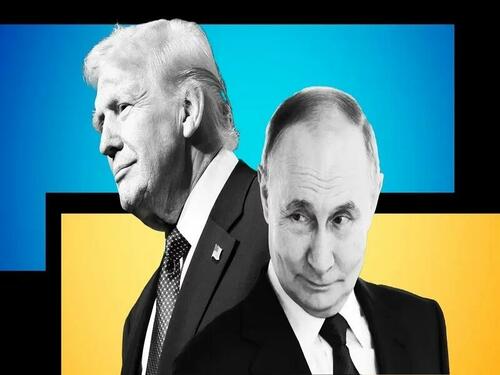Authored by Andrew Korybko via substack,
This scenario is increasingly in America and Russia’s shared interests vis-à-vis their “New Détente”...
Hungarian Prime Minister Viktor Orban predicted late last month that “Ukraine, or what remains of it, will once again be a buffer zone” between NATO and Russia once the conflict inevitably ends. His rationale is that it’ll be kept out of NATO but also is unlikely to fall completely under Russia’s sway. This is logical, but another scenario is also possible, namely that Ukraine turns into a “bridge state” instead, which could help repair Russian-Western or at least Russian-American relations.
To explain, Russia’s goals of demilitarizing and denazifying Ukraine can’t easily be obtained unilaterally in the sense of Moscow forcibly imposing this, let alone indefinitely maintaining it. They much more realistically require a compliant government in Kiev to carry them out. This explains the terms contained in the spring 2022’s draft peace treaty that was sabotaged by the UK and Poland. Those two and their shared US patron didn’t want that outcome since they thought they could strategically defeat Russia.
America’s strategic calculations changed after Trump’s historic election victory, however, to the point where the US is now ready to make more concessions than Russia in pursuit of a “New Détente”. This arrangement that they’re working towards is deemed much more important to the US than continuing to weaponize Ukraine against Russia since it could lead to eroding some of China’s competitive edge vis-à-vis the US by incentivizing Russia into limiting resource and military cooperation with it.
Readers can learn more about the contours of their emerging deal here, here, and here, which could of course also be offset by unexpected developments or not be reached in full but is generally what they want to agree upon. In the event that they’re successful, a so-called “moderate government” might eventually take power in Kiev after elections are held, especially if Trump coerces Zelensky into not running or authorizes his intelligence services to support whoever his rival might be given their tensions.
That would be an historic outcome since whoever replaces Zelensky might very well implement the demilitarization and denazification goals that Russia has sought to achieve over the past three years with the full approval of Trump’s America as a quid pro quo for whatever else Russia and the US agree upon. While Russian-Ukrainian trade might never return to its pre-2014 level due to Ukraine’s EU Association Agreement and other such economic pacts, that would still go a long way towards a rapprochement.
The relative normalization of Russian-Ukrainian relations can therefore lead to Ukraine becoming much more of a “bridge state” than a “buffer state” in terms of maintaining the “New Détente” between Russia and the US. Whether or not it leads to a gradual rapprochement in Russian-EU relations would depend on Brussels’ response to these potential developments as well as Warsaw’s since Poland serves as the EU’s gateway to Ukraine. Neither appear likely for now but they also can’t be ruled out either.
As the Russian-US talks progress, it would be in both of their interests to do everything possible to turn Ukraine into a “bridge state”, which Putin might have expected to be a potential outcome all along and could explain his decision not to wage an all-out war on Ukraine. By being careful to avoid collateral damage to civilians, including inconveniences like if Russia bombed bridges across the Dnieper or totally destroyed Ukraine’s energy infrastructure, he made this comparatively easier.
The keyword is comparatively since there’ll still be some Ukrainians who’ll hate Russia no matter what and have felt that way for whatever their personal reasons may be even before the special operation. Nevertheless, the point is that the self-restraint that Russia has exercised throughout the course of the conflict kept viable the scenario of a rapprochement with Ukraine, which now increasingly aligns with American interests as Trump 2.0 conceptualizes them to be and is thus more likely than ever before.
Loading...
